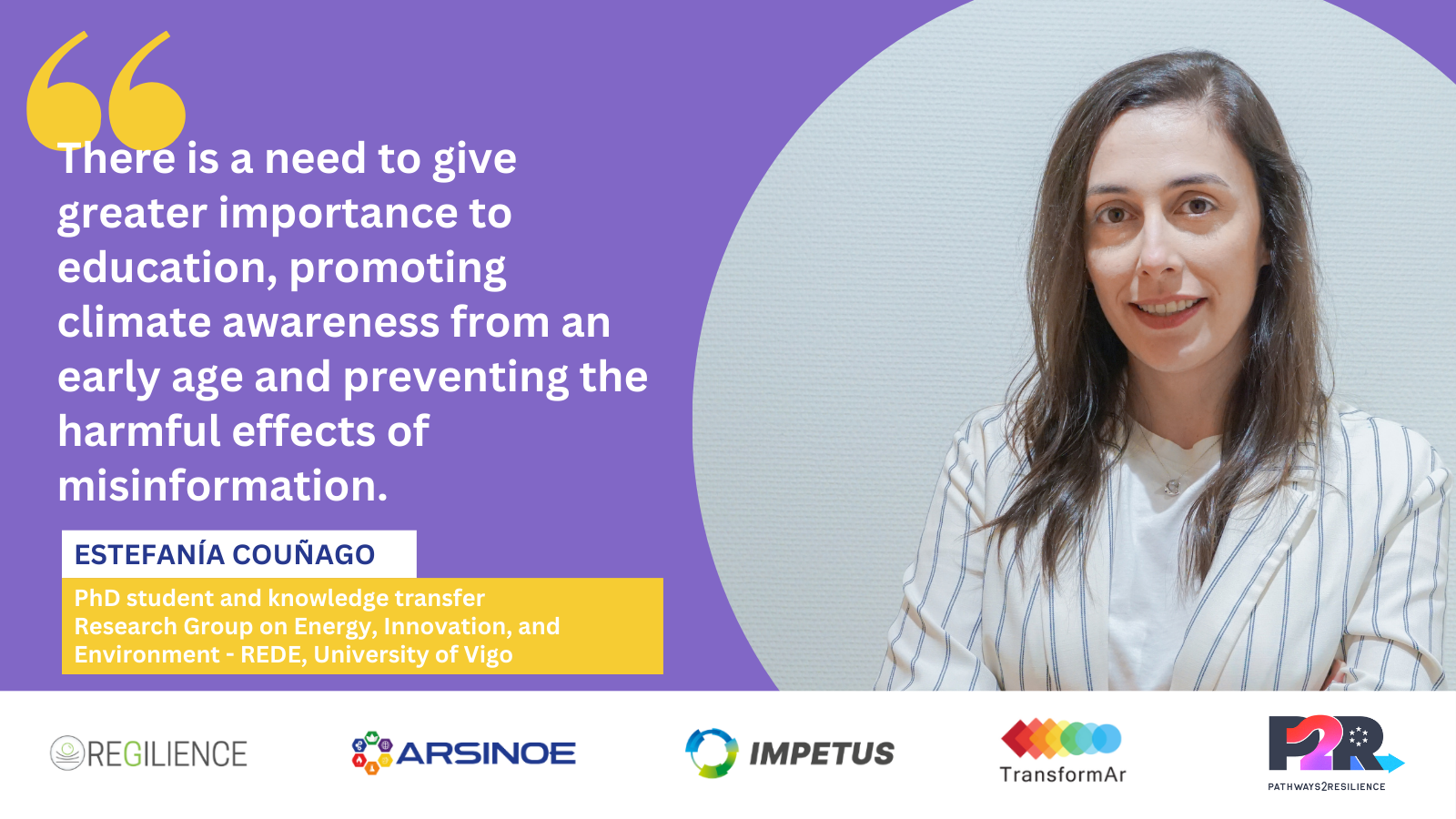March is the month dedicated to celebrating the achievements and contributions of women worldwide. In alignment with this spirit, REGILIENCE, Arsinoe, IMPETUS, TransformAr and Pathways2Resilience have jointly engaged in insightful conversations with inspiring women actively involved in crafting resilience and adaptation solutions to address the inevitable challenges posed by Climate Change. Discover their journey!
How is your expertise and background concretely reflected in your role in TransformAr project?
I am approaching the final phase of my PhD within the Research Group on Energy, Innovation, and Environment (REDE) at the University of Vigo, Spain. My research specifically focuses on the resilience of critical infrastructures to impacts resulting from climate change. Additionally, I have collaborated in the initial development of the resilience index for a port infrastructure -the Outer Port of A Coruña- within the framework of the MarRISK project. This experience has allowed me to transfer these insights to the main activity of our team within the TransformAr project: contributing a tool to enhance the operational resilience of the mussel sector value chain.
What are the main drivers that have motivated and still motivate you to contribute in the field of climate adaptation and resilience?
My initial motivation comes from witnessing the devastating consequences of events such as wildfires or oil spills in the environment I grew up in, in Galicia. On the other hand, during my education, I identified a significant gap in how we integrate environmental aspects into socio-economic activities. This led me to pursue my master’s studies in sustainable development management, where I gained a broader perspective on the magnitude of the challenge posed by climate change, our role both as contributors to the issue and as potential agents for resolution, and the urgent need for action. Thus, having the opportunity to research this field and design and implement measures that contribute to addressing it is truly rewarding and motivating.
What is the biggest challenge you faced in your career, notably as a woman in the field of climate research?
Initially, the minority representation of women role models in this field can generate uncertainty and additional challenges for aspiring professionals in this discipline. This amplifies the pressure to prove our worth and overcome stereotypes and barriers that hinder the access and advancement of other women. Nevertheless, I believe there is an encouraging shift in the perception and motivation of women towards research in general, and this field in particular.
According to you, what is currently the biggest gap we face to adapt efficiently to climate change?
The lack of effective integration of policies and measures at all levels, from local to global, and the absence of suitable and accessible tools for end-users and stakeholders pose a significant challenge in addressing climate change adaptation. Such a challenge cannot be tackled without efficient resource coordination and a multidisciplinary approach. Additionally, the prevailing short-term focus of decision-making and the lack of political commitment at the territorial level often hinder the adoption of long-term measures and the continuity of initiatives. There is a need to give greater importance to education, promoting awareness from an early age and preventing the harmful effects of misinformation.
How do you plan to contribute to reduce this gap, or continue to contribute to make our societies more resilient?
My aspiration is to contribute by transferring knowledge from climate change and resilience research to society in an accessible and pragmatic way. I also intend to remain actively involved in initiatives that provide comprehensive solutions by collaborating with stakeholders from different fields of knowledge and involving all parties concerned. I believe that this mutual enrichment contributes to an incremental improvement in results and the scope of knowledge dissemination.




